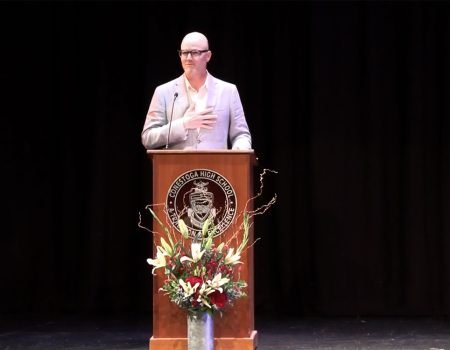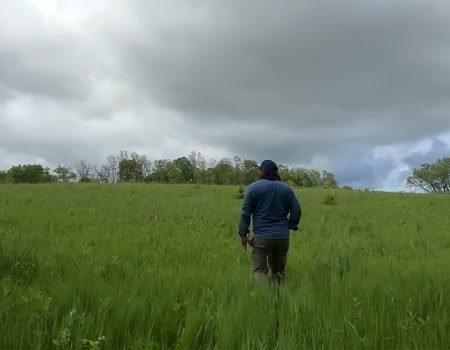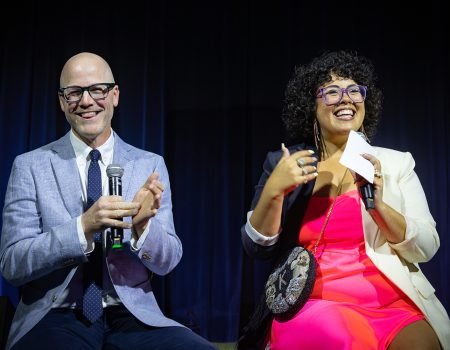Stone Harbor
There are myths in family, tales spoken so often and not that they become something other than their truth or fiction. This is mine.
My parents were born and raised in Waterloo, Iowa, a manufacturing town of about 100,000, on the muddy banks of the Cedar River. It is quieter now, I imagine, than the Waterloo they knew growing up. The postwar manufacturing boom, annual Cattle Congress, and bustling downtown were vital and still becoming then. Now, with the local packing plant, John Deer, and agriculture in general in dramatic decline, Waterloo is a sleepy town, its center long-since abandoned.
My father’s father served in World War II (where he lost a brother who’s remains lie half-a-world away in North Africa), married in his early twenties, and spent his life on the floor of the John Deer factory. My grandfather is gruff, terse, and of quick temper. Of his eight children, seven live within a five mile radius. Only the two eldest, my father David and his brother Stan escaped his clutches.
Complicit in the close-to-home directive, though, is my father’s mother. The first generation to leave the family farm, my grandmother has no driver’s license, and has never flown on a plane. Though she hasn’t visited a home of mine since I was five, she consistently berates me for my poor visitation record (despite it being close to yearly). My father put himself through the University of Northern Iowa, where he worked at the municipal waste water treatment plant by day, studied by night, and visited my mother 250 miles away on weekends. Though he was an exceptional high school student, excelling at math, the sciences, and starting on the basketball team, his undergraduate grades were average.
My mother’s father moved to Waterloo after his first marriage failed. A traveling salesman, he met and married my grandmother, Mildred, converted to Catholicism, and laid down his trunks for good. With a partner, my grandfather opened Sweeney’s fine women’s clothing not far from his beloved Elk’s club in downtown Waterloo. He took frequent trips to Chicago and New York, bringing my mother or one of her two siblings along to wander the city, take in museums and theater, and generally be exposed to life beyond Waterloo. The family’s black clapboard home on Derbyshire Drive was, I imagine, a Cheever-like mid-50’s suburban oasis. A gardener tended the lawn and bushes, while a cool filled leaded crystal with cold gin and tonics. My mother, the youngest, grew up in the shadow of her sister Beverly, and rambunctious brother Bill. A nature in the creative arts, she performed in school plays, took piano lessons, and was selected at Girls State to attend Girls Nation in Washington, DC, where she shook hands with John F. Kennedy. At her father’s insistence, my mother matriculated to the College of St. Theresa in Winona, MN, where she studied nursing at the nearby Mayo Clinic.
Though just miles apart, it seems to me that my parents grew up in separate worlds.
I can only imagine their burgeoning love, as I never saw it. I imagine that my father, in his buzz cut, black suit, and standard issue black-framed glasses, was attracted to the gregarious, if not flamboyant, swath that my mother cut. My mother, no doubt, saw in him a solid, square-jawed, hardworking, man of promise.
It is impossible for me to know.
They were married in July of 1968, fresh on the heels of my mother’s father’s sudden death, and a few months prior to the arrival of my brother Christofer. In the wedding film, my Grandpa Wagner laughs into the camera, then flips it off.
The three moved to Iowa City Iowa where both received master’s degrees from the University of Iowa. The first sign of my imminent arrival, I suppose, was sometime around the spring of 1971 as the family prepared to leave Iowa for the first time. I was induced on September, 4, 1971 — Labor Day Weekend — in an effort to maximize efficiency. The next morning, my father flew to Waldorf, MD, to begin his first teaching assignment at the King’s County Community College. My mother, Christofer and I flew to meet him three weeks later. My Grandma Bolster joined us for the flight, and told my mother, “No matter what happens with this boy when he grows up, remember that he was a perfect little angel during this move.”
Of my first ten years in Waldorf, Indianapolis, and Chicago, I remember only fleeting snapshots. Eating cold cereal in my pajamas at the red, white and blue picnic table next to our red maple tree. Building an “Indy Orange” go-cart in the basement and racing it on the quiet Broad Ripple streets. Fishing in the canal. Lake affect snow drifts taller than my bundled self. Selling lemonade at Frank Lloyd Wright’s home and studio just down the block. Racing downstairs in footed pajamas, blinded by the flood light of my father Super8 film camera on Christmas morning. Talent shows, home movies, summer’s in The Land of a Thousand Lakes. And brief but frequent flair ups between my parents.
I will turn 33-years-old in September. At the time of my tenth birthday, one month prior to my parent’s divorce, my mother was 35, and my father was 34.
There are at least two official versions of my parent’s divorce, if not more. But they’re not important here, nor is it my business to relate them to you. Instead, I offer my theory. I offer another myth.
My parents were, and remain, radically different people, with radically divergent views of themselves, the world, and their place in it. In the simplest terms (and most convenient definitions), my mother is the artist, and my father is the scientist. Classic Eros and logos. Expressive and random abstract (her phrase), my mother was doomed in her attempts to communicate with my introverted and logic-based father — and vice versa. An aspirant, he could never provide the lifestyle of which she dreamed. And so she left.
The legacy, then, is my brother and I. As children, Chris got hockey skates, I got figure skates. Chris got baseball mitts and bikes, I got paints and telescopes. Chris played trumpet, I played flute. Chris played Pop Warner football, while I took drawing classes. (Though we were both on swim team.)
Beneath the surface, it bears out similarly. Like my father (and his before him), Chris was angry, courageous, and curt. Like my mother, I was emotive, sensitive, and vociferous.
But as we continue to grow up — my mother, father, brother, and I — it is apparent to me that in fact we are all all of the above. My assertion ebbs and flows. Chris’ anger waxes and wanes. My father’s sensitivity increases, while my mother’s rebellion builds.
As an adult, I find myself analytical, systematic, and process-oriented in ways I never would have guessed. I push myself into challenges and adventure even when I am afraid. I see in my brother flashes of vulnerability, sadness, and absolute fragility. I see him wrestle for years with a decision, then make up his mind in a snap.
There’s a saying that the apple never falls far from the tree. The adage suggests that in every harvest, there is evidence of the one before, and that there is more so, than not so. In family, that tree is more than the sum of its seasons. It is the twisted branches, blooms and scars that the very process of becoming creates. It is the cross-section of rings, evidence of time passed, and evidence of the blood flowing through our roots and veins. It is a single, autonomous entity in which its distinct elements — the branches, bark, leaves, flowers, and fruit — are indistinguishable in their unity. I am they, we are us, and we are all far more alike than we know.



